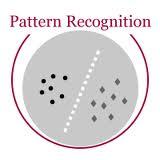The satisfaction probability Pr[$\phi$] := Pr$_{\beta:vars(\phi) \to \{0,1\}}[\beta\models \phi]$ of a propositional formula $\phi$ is the likelihood that a random assignment $\beta$ makes the formula true. We study the complexity of the problem $k$SAT-Pr$_{>p}$ = {$\phi$ is a $k$CNF formula | Pr[$\phi$] > p} for fixed $k$ and $p$. While 3SAT-Pr$_{>0}$ = 3SAT is NP-complete and SAT-Pr$_{>1/2}$ is PP-complete, Akmal and Williams recently showed that 3SAT-Pr$_{>1/2}$ lies in P and 4SAT-Pr$_{>1/2}$ is NP-complete; but the methods used to prove these striking results stay silent about, say, 4SAT-Pr$_{>3/4}$, leaving the computational complexity of $k$SAT-Pr$_{>p}$ open for most $k$ and $p$. In the present paper we give a complete characterization in the form of a trichotomy: $k$SAT-Pr$_{>p}$ lies in AC$^0$, is NL-complete, or is NP-complete. The proof of the trichotomy hinges on a new order-theoretic insight: Every set of $k$CNF formulas contains a formula of maximum satisfaction probability. This deceptively simple statement allows us to (1) kernelize $k$SAT-Pr$_{\ge p}$ for the joint parameters $k$ and $p$, (2) show that the variables of the kernel form a backdoor set when the trichotomy states membership in AC$^0$ or NL, and (3) prove locality properties for $k$CNF formulas $\phi$, by which Pr[$\phi$] < $p$ implies that Pr[$\psi$] < $p$ holds already for a subset $\psi$ of $\phi$'s clauses whose size depends only on $k$ and $p$, and Pr[$\phi$] = $p$ implies $\phi \equiv \psi$ for some $k$CNF formula $\psi$ whose size once more depends only on $k$ and $p$.
翻译:暂无翻译




